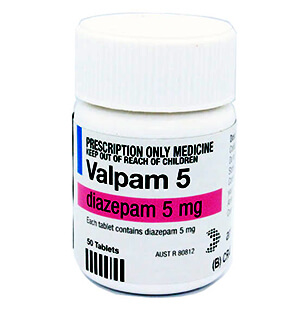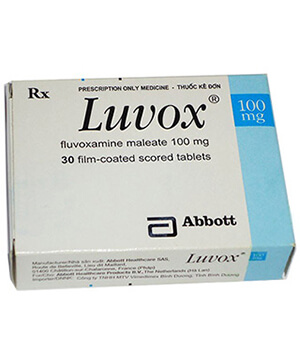Description
What is Valium (diazepam)?
• Valium (diazepam) is in a class of drugs called benzodiazepines. Valium (diazepam) affects chemicals in the brain that may become unbalanced and cause anxiety, seizures, and muscle spasms.
• Valium (diazepam) is used to relieve anxiety, nervousness, and tension associated with anxiety disorders. It is also used to treat certain types of seizure disorders and muscle spasms.
• Valium (diazepam) may also be used for purposes other than those listed in this medication guide.
What should I discuss with my healthcare provider before taking Valium (diazepam)?
• Do not take Valium (diazepam) if you have narrow-angle glaucoma. Valium (diazepam) may worsen this condition.
• Before taking this medication, tell your doctor if you
· have kidney disease;
· have liver disease;
· have asthma, bronchitis, emphysema, or another respiratory disease; or
· are depressed or have suicidal thoughts.
• You may not be able to take Valium (diazepam), or you may require a dosage adjustment or special monitoring during treatment if you have any of the conditions listed above.
• Valium (diazepam) is in the FDA pregnancy category D. This means that Valium (diazepam) is known to harm an unborn baby. Do not take this medication without first talking to your doctor if you are pregnant.
• Valium (diazepam) passes into breast milk. Do not take Valium (diazepam) without first talking to your doctor if you are breast-feeding a baby.
• If you are over 65 years of age, you may be more likely to experience side effects from Valium (diazepam). You may require a lower dose of this medication.
What is the most important information I should know about Valium (diazepam)?
• Use caution when driving, operating machinery, or performing other hazardous activities. Valium (diazepam) will cause drowsiness and may cause dizziness. If you experience drowsiness or dizziness, avoid these activities.
• Avoid alcohol while taking Valium (diazepam). Alcohol may increase drowsiness and dizziness caused by Valium (diazepam). Alcohol may also increase the risk of having a seizure if Valium (diazepam) is being taken for a seizure condition.
• Valium (diazepam) is habit forming. You can become physically and psychologically dependent on the medication. Do not take more than the prescribed amount of medication or take it for longer than is directed by your doctor. Withdrawal effects may occur if Valium (diazepam) is stopped suddenly after several weeks of continuous use. Your doctor may recommend a gradual reduction in dose.
What are the possible side effects of Valium (diazepam)?
• If you experience any of the following serious side effects, stop taking Valium (diazepam) and seek emergency medical attention or contact your doctor immediately:
· an allergic reaction (difficulty breathing; closing of your throat; swelling of your lips, face, or tongue; or hives);
· sores in the mouth or throat;
· yellowing of the skin or eyes;
· a rash;
· hallucinations or severe confusion; or
· changes in your vision.
• Other, less serious side effects may be more likely to occur. Continue to take Valium (diazepam) and talk to your doctor if you experience
· drowsiness, dizziness, or clumsiness;
· depression;
· nausea, vomiting, diarrhea, or constipation;
· difficulty urinating;
· vivid dreams;
· headache;
· dry mouth;
· decreased sex drive; or
· changes in behavior.
• Side effects other than those listed here may also occur. Talk to your doctor about any side effect that seems unusual or that is especially bothersome.
What should I avoid while taking Valium (diazepam)?
• Use caution when driving, operating machinery, or performing other hazardous activities. Valium (diazepam) will cause drowsiness and may cause dizziness. If you experience drowsiness or dizziness, avoid these activities.
• Avoid alcohol while taking Valium (diazepam). Alcohol may increase drowsiness and dizziness caused by Valium (diazepam). Alcohol may also increase the risk of having a seizure if Valium (diazepam) is being taken for a seizure condition.
• Valium (diazepam) may increase the effects of other drugs that cause drowsiness, including antidepressants, alcohol, antihistamines, sedatives (used to treat insomnia), pain relievers, anxiety medicines, seizure medicines, and muscle relaxants. Tell your doctor about all medicines that you are taking, and do not take any medicine without first talking to your doctor.
What other drugs will affect Valium (diazepam)?
• Valium (diazepam) may increase the effects of other drugs that cause drowsiness, including antidepressants, alcohol, antihistamines, sedatives (used to treat insomnia), pain relievers, anxiety medicines, seizure medicines, and muscle relaxants. Tell your doctor about all medicines that you are taking, and do not take any medicine without first talking to your doctor.
• Antacids may decrease the effects of Valium (diazepam). Separate doses of an antacid and Valium (diazepam) by several hours whenever possible.
• Drugs other than those listed here may also interact with Valium (diazepam). Talk to your doctor and pharmacist before taking any prescription or over-the-counter medicines.
Where can I get more information?
• Your pharmacist has additional information about Valium (diazepam) written for health professionals that you may read.






Reviews
There are no reviews yet.